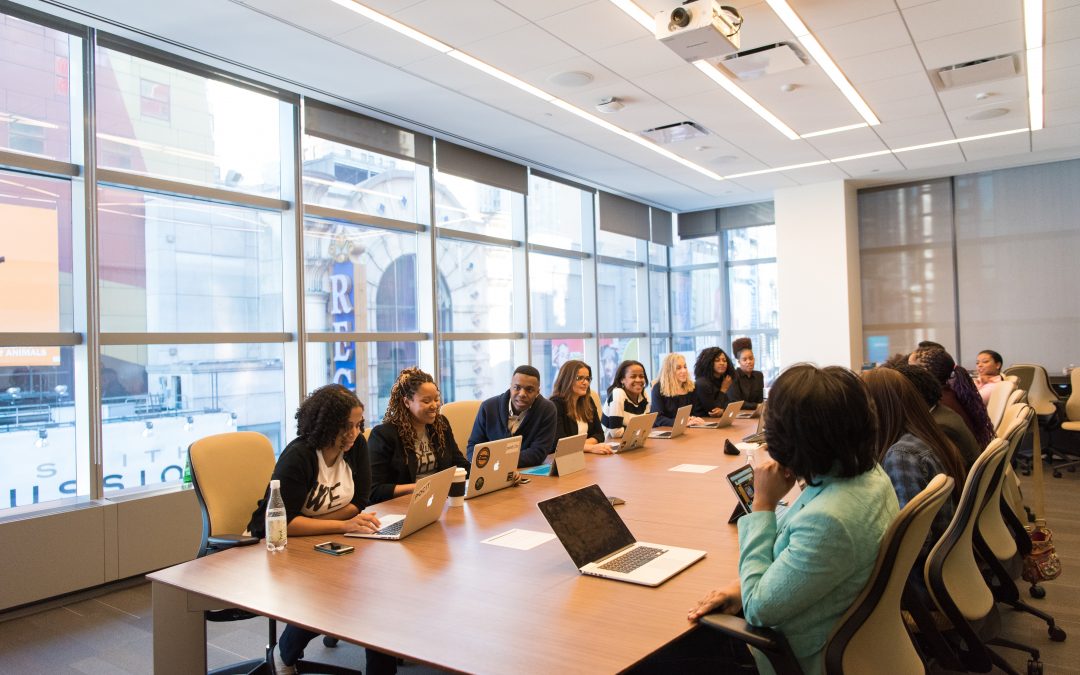
It hurts
After an insane two weeks, I am back at home in sunny Wolverhampton. A few weeks back I flew out to Boston, headed to Cambridge and attended FOSSCamp and the Ubuntu Developer Summit. The following week it was then off to nearby Plymouth for Canonical’s week-long Allhands shin-dig. I know that last year the UDS/Allhands combination was a pretty intense few weeks on both the work and social fronts, but with the addition of FOSSCamp and a lot more people at these events, it was one hectic trip, and my liver is keeping me awake at night crying.
FOSSCamp was a great success and very productive for the many participants. It was great to see so many upstreams coming together, and in addition to the attendees that came along, I was also really pleased to meet up with my friends Joe Shaw, Miguel de Icaza, Aaron Bockover, Jon Masters, David Zeuthen and Zaheda Bhorat. One of the aspects of FOSSCamp that I particular enjoyed was that it attracted such a diverse crowd and the discussions were both fun and productive.
UDS was an active, high-paced week and resulted in some particularly interesting specs. We got rid of the drafting sessions at this UDS so it resulted in a lot more time for actual discussions, and this was eagerly utilised to get specs as mature as possible before they went to the drafting phase. We also added a bunch of round-table sessions which were particularly useful for the community track. It was a long, tough week, and by the end, everyone was pretty tired from the amount of work that week – it sounds like we all just sit around talking, but outside the core spec sessions there are lots of additional discussions, plans and meetings that place in the corridors, bars and restaurants where UDS is happening. In the organisational team we felt it was the best UDS yet (this was my third, and I felt like it was by far the best), and I look forward to the event continuing to mature and grow. I will be leading much of the organisation for future Ubuntu Developer Summits as part of my team, so I welcome all comments on how we can improve them to jono AT ubuntuREMOVETHIS DOT com.
I think its safe to say that the UDS is a pretty rock ‘n roll event. At each of three I have been to, the evening social events have been pretty rip roaringly crazy. Well, this one was no different, and we happily took over a local watering hole called the Asgard (an Irish pub, oddly), and spent many evenings there or at another place called The Miracle Of Science. The drink of choice for the trip was the Jager Bomb – a half pint of Red Bull with a shot of Jagermeister in a shot glass inside the pint glass. Ben Collins (leader of the kernel team) and I had a fair few evenings hitting the bombs, with one particular evening netting somewhere in the region of six bombs and three or four beers for good measure. In between the evening sessions at the Asgard we also managed to celebrate Halloween, American style, and the [evidence can be seen here](https://fridge.ubuntu.com/node/1219). Oh dear.
It was then over to Plymouth on the Saturday for Allhands. This is where we as a company have discussions, get to know each other and present to others our work in our respective departments. We heard talks from the Ubuntu, business, Launchpad, Landscape, global support/services, community and other teams. It was a great week, lots got done, and it was great to meet a bunch of new faces in the company. On the Thursday we also had CanoniJam07, in which a bunch of musicians in the company got up and played some tunes. A good week. At the end of all this, I flew to Heathrow with a bunch of colleagues and then got the train back to Wolves with Matt Revell.
It was an insane few weeks and consequently, I am shattered. One of the worst things about travel is getting home to the relatively boring and average Wolverhampton after a few weeks of being around smart, entertaining, interesting people and having a great time working and being social. Maybe it is time to move on to new living pastures, particularly as I have a job which means I can work from home.

Burnout
This morning we had an interesting community round table session, and a key item that was raised was the worry of burnout for contributors. I myself have seen a few people burn out, and we discussed what we can do to (a) help prevent it and (b) help people through it.
When trying to improve different community structures it can often be tempting to produce systems, processes and procedures to fix problems and make things more efficient, but fundamentally some things require simple human interactions. I think this applies to burnout. The issue of burnout is something that can be caused by a range of different things such as stress, being over-worked, personal issues, work problems and more, and it can often be difficult to spot if you have never burned out before.
I think what is essential here is that if you are feeling stressed and over-worked and possibly feeling the symptoms of burnout, go and talk to someone about it – getting it off your chest and talking to someone can be hugely beneficial. My door is certainly always open.

UDS Remote Participation
It should be noted that with all this UDS fun and games going on, you can listen in and contribute via VoIP and IRC by reading [this page](https://wiki.ubuntu.com/UDS-Boston/Participate).
Another good day today so far, come and get involved. 🙂

FOSSCamp and UDS
I am over in Cambridge for FOSSCamp and the Ubuntu Developer Summit. Insanely busy and not much tome to blog, so its bullet-time:
* My laptop keyboard broke as I tried to check email an hour before I left for the Airport to fly to Boston. This resulted in a mad rush to buy an external USB keyboard, which was less than fun when running down Tottenham Court Road with a big suitase. Typical timing!
* FOSSCamp went very well, and seems to have been very productive. I had some excellent discussions throughout the event, and it was great to have so many different upstreams participating. It was also great that Miguel and Aaron from Novell and Colin from Red Hat came along.
* Social events fun so far – Friday night danced to a funk band in an Irish bar named after a norse capital city (!), Sat night watched the Red Sox in a strange communist styled bar surrounded by people in fancy dress (!), last night dinner with Debra, Mako and Mika.
* Hung out with Jon Masters, haven’t seen him for ages – he seems to be doing well. Still as round-headed as the legend states. 🙂
* Gin is an evil substance.
* Cambridge is a really nice area, and some great restaurants to choose from, and different types of international cuisine – Ethiopian sounds particularly interesting.
* The UDS, which is half a day old so far, has been very productive. I think we are really beginning to nail the organisation now and make the event more accessible, more streamlined, and more productive. We have a really great crowd attending, and I think it is going to be an excellent week for Ubuntu.
* Had an excellent discussion today about upstream relations – I think we have some real opportunities to improve and progress relations with upstream. Some interesting ideas, and the spec is going to have another session later in the week.
* There is a strong MOTU and Debian presence here, as to be expected, and there are some excellent discussions going on about streamlining these groups – yesterday at FOSSCamp there was an excellent inter-change between different MOTUs and DDs about improving relations. I am very keen for us to really focus on the Ubuntu/Debian relationship and refine and improve it.
Busy week ahead, and not much time to blog, but I will try to keep you all updated as we go.
UPDATE: Check out the [fridge article](https://fridge.ubuntu.com/node/1193) about FOSSCamp!

Second Ubuntu Monthly Report
I am pleased to announce the second monthly Ubuntu monthly report – go read the [October 2007 report](https://wiki.ubuntu.com/TeamReports/October2007)! It is great to see the incredible work going on in the community. 🙂
I am really pleased how the reports are going, but we need more teams to participate. If you are in an Ubuntu team and have not been contributing reports, please go and see [this guide](https://wiki.ubuntu.com/BuildingCommunity/TeamReporting) of how to get started.

LugRadio Season 5 Episode 3
Season 5 Episode 3 is [released](https://www.lugradio.org/episodes/86):
> In the latest episode of LugRadio, the team interview Quim Gil from Nokia about the newly announced Nokia N810 Internet Tablet, discuss how liable software vendors should be for security holes, packaging software for Ubuntu/Debian and use the finger of god to help guide the team forward, all wrapped in the usual fun, humorous and irreverent commentary that LugRadio has become known for.
[Digg](https://digg.com/linux_unix/LugRadio_Season_5_Episode_3_Divine_Digits) and [Download](https://www.lugradio.org/episodes/86) and [Discuss](https://forums.lugradio.org/viewforum.php?f=1)

Ubuntu Open Week Is Here

Ladies and Gentlemen, Packagers and Developers, Translators and Bug Triagers, Advocates and Helpers, this week I am pleased to see another [Ubuntu Open Week](https://wiki.ubuntu.com/UbuntuOpenWeek) begin, and I am *raring*…no, *chomping at the bit* to go. It happens all this week from 3pm UTC until 10pm UTC.
42 sessions, showing how to get started contributing to Ubuntu in a range of different areas, from packaging to development, to translations to bug triage, to advocacy and support. This is all an effort to make it easier to join our incredible community. Go and see [our timetable of sessions](https://wiki.ubuntu.com/UbuntuOpenWeek).
Want to come along? Simple, just [read this page](https://wiki.ubuntu.com/UbuntuOpenWeek/JoiningIn).

7.10 Released

Well, after six months of feverish development, [Ubuntu 7.10 Gutsy Gibbon is released](https://www.ubuntu.com/getubuntu/releasenotes/710tour).
An Ubuntu release is a phenomenal achievement for a worldwide network of volunteers and enthusiasts as well as the developers hired by Canonical to work on Ubuntu full-time. But, it is not just developers that contribute, but artists, translators, testers, documentation writers, bug triagers, support, QA, marketing, publicity, administration, hosting, mirroring, logging, forums, irc ops, and a range of other areas. We should also not forget the incredible wealth of upstream software that each Ubuntu release pulls from, and the enormous pool of software that the awesome [MOTU team](https://wiki.ubuntu.com/MOTU) package and make available for each Ubuntu release. Finally, there are the tireless bunch in business development who work on support offerings, OEM deals, training, global alliances, partner programmes, ISVs and various other aspects which help take this incredible Operating System and make it attractive to businesses, vendors and professionals around the world.
Its pretty incredible really – thousands of contributors, scattered all over the world, each contribute their own expertise, and together produce a web of different cultures, abilities and skills. But they are all drawn together by a simple vision – producing an easy to use, powerful, free software Operating System that is ready for the masses, and ready to change the mechanics of the computing world. This is what Ubuntu and free software is all about.
Finally, each release is a great time for a little bit of reflection, and to observe where you think things went right and wrong. As usual, at release time I would welcome you to [send me an email](mailto:jonoATubuntuDOTcom) with constructive thoughts on me and my team’s (my team being Daniel ‘dholbach’ Holbach and Jorge ‘jcastro’ Castro) work in the community. I would also like to use this as an opportunity to say a huge *well done* and *thank-you* to everyone in the community. This is my third release, and every day I feel proud to work with such an incredible group of people who are just so enthusiastic and determined to make Ubuntu kick arse. We are getting there folks, lets *really* make Hardy kick arse. 🙂
Everyone, go celebrate for a job well done, and even if you are not an Ubuntu user, go and celebrate that free software has made another step forward. 🙂

Eve Of The Gibbon
It was the night before the Ubuntu Gutsy Gibbon came to visit, and all was quiet. All over the world, boys and girls lay excited in their beds, awaiting the treats that would present them the following day. Yes indeed, its that festive time when an Ubuntu release is about to hit the tubes. For each release two distinctive things happen:
* Lots of people get excited around the world about the next iteration of Ubuntu being released.
* The sysadmin team clench a little harder than usual.
I want to use the eve of gutsy to issue a few notices:
* Firstly, we don’t release a new release to the Internet at any specific time, it will be released *at some point* on the 18th Oct 2007.
* Secondly, as usual, you can catch the rip-roaring-release-rollercoaster-ride-of-excitement by joining #ubuntu-releaseparty on Freenode. It is always a fun atmosphere in there as many people wait for the release, and many people literally starve themselves of toilet breaks so as not to miss the release hitting the Internet.
* Thirdly, we have a whopping **69** release parties going on all over the world. See the [list of parties here](https://wiki.ubuntu.com/GutsyReleaseParties). Go along to your nearest one, and have some fun. Unfortunately I won’t be at a party tomorrow night, but stuck in the studio with the LugRadio fellas. Rest assured, I will be drinking.
* Finally, if you do go to a release party, record a video or photograph the party. If you video it, please say “Happy Release 7.10 from
Get Ready. Get Set…

First Shot at Packaging
One of the most important projects in the Ubuntu community is [MOTU](https://wiki.ubuntu.com/MOTU) – a project to produce Ubuntu packages for the many and various Linux applications out there. MOTU is not only for producing packages, but is also the place where people actually learn to package, eventually becoming MOTU contributors (people who produce packages for the `universe` repository) or core-dev (people who produce packages in the `main` repository).
For a while now I have had an item on my TODO list:
* *learn how to produce Ubuntu packages, and maybe learn to become a MOTU*
Well, yesterday evening while trying to sleep I developed a cold, and as the day continued, I felt progressively worse. After meeting up with a mate last night, I tried to sleep and failed. So, instead of laying in bed wishing for sleep (I hate that), I figured I would use the time to learn how to package.
To get started I followed the excellent [Ubuntu Packaging Guide](https://doc.ubuntu.com/ubuntu/packagingguide/C/). As I worked through it, I made some notes about bits of the guide that need fixing, and [posted them to ubuntu-motu](https://lists.ubuntu.com/archives/ubuntu-motu/2007-October/002467.html) where they are planned to be merged in. After I had produced the `hello` packages with the different techniques, I then tried my hand at packaging something. I decided to try and package the new [PiTiVi 0.11.0 release](https://www.pitivi.org/wiki/Downloads).
This resulted in [this package](https://archivedblog.jonobacon.com/files/pitivi_0.11.0-0ubuntu1_all.deb). It works on my system, and is built for gutsy. Give it a shot, but this is my first package, so if it eats your important documents, don’t expect sympathy. 🙂 And as for hardcore packaging nutters, yes, I used CDBS for this package, and used the existing PiTiVi package to learn from, and I am new, so don’t kick me too hard. 🙂
I do plan on continuing to learn how to produce a package using debhelper and not using CDBS. Thanks to everyone in #ubuntu-motu for their help; you are a fine bunch of people. 🙂
To be frank, I was a bit worried that packaging would be a bit too hardcore for me, but it was easier than I expected, the the tools available are excellent – from the tools to automate creating the package control files, to the pbuilder which helps build the binary package and ensures it pulls in the right dependencies. Obviously, I am at the start the journey, but has gone much smoother than I expected.
Also, don’t forget the range of sessions at [Ubuntu Open Week](https://wiki.ubuntu.com/UbuntuOpenWeek) next week for those of you who want to learn to contribute to Ubuntu as packagers. 🙂
